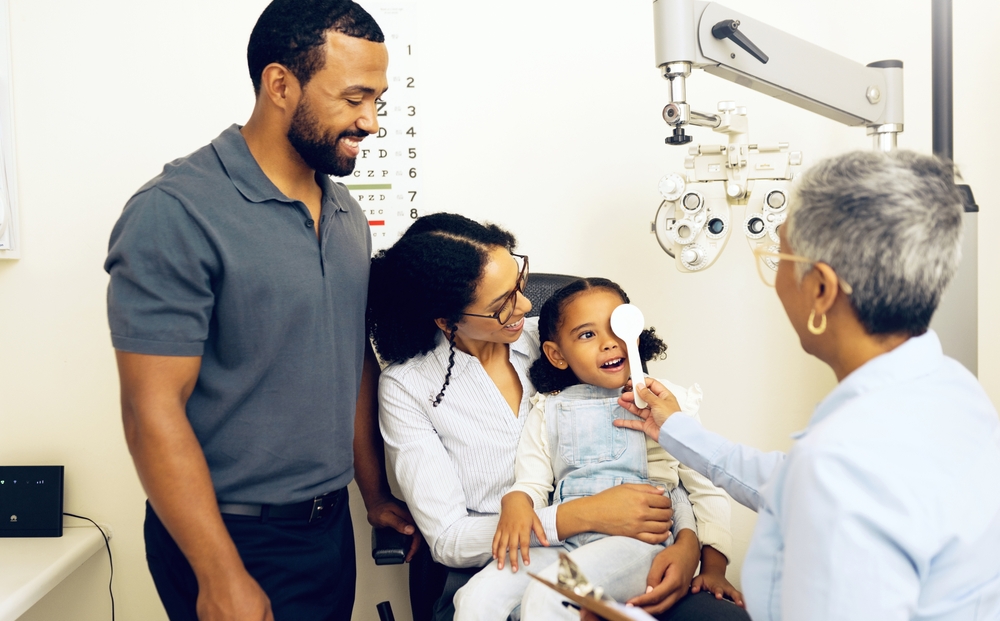
A pediatric eye exam is an in-depth assessment of a child's eyes and vision. Unlike the simple vision screening tests conducted at schools, pediatric eye exams provide a comprehensive evaluation, checking for any common eye conditions in children. They not only assess whether your child can see clearly, but also evaluate eye alignment, eye movement, and the health of the eyes.
Understanding the First Pediatric Eye Exam
The first pediatric eye exam is a significant milestone in your child's life. It is not merely about determining if your child needs glasses. It is a thorough evaluation that can detect any underlying eye health issues which might interfere with your child's visual development.
During the first pediatric eye exam, the optometrist will conduct various tests to assess your child's visual acuity, eye alignment, eye focusing abilities, depth perception, and color vision. The optometrist will also examine the overall health of your child's eyes, checking for signs of common eye conditions in children.
The first pediatric eye exam is usually a comfortable and straightforward process. The optometrist will use age-appropriate language and tools to ensure your child is at ease. If any eye health issues or vision problems are detected, the optometrist will discuss the findings with you and suggest a course of action, which may include glasses, or further testing.
When Should Kids Have Their First Pediatric Eye Exam?
The American Optometric Association recommends that children should have their first comprehensive eye exam at six months of age. This early exam is crucial for detecting any congenital or developmental eye problems that could affect your child's vision.
The next recommended eye exam is at age three, and again before your child enters school, at about age five or six. Regular eye exams are essential during school years as good vision is closely linked to academic performance. If your child has no risk factors for eye problems, they should continue to have their eyes examined every one to two years. If they have glasses, or if there are any risk factors, yearly exams are recommended. However, if you notice any eye or vision problems at any age, you should arrange an eye exam immediately.
Common Eye Conditions in Children
Children can experience a range of eye conditions. Some common eye conditions in children include refractive errors, lazy eye, cross-eye, color blindness, and congenital eye defects.
Refractive errors are the most common eye conditions in children. They occur when the eye does not bend light properly, resulting in blurred vision. Amblyopia, also known as lazy eye, is a condition where one eye does not develop good vision. Strabismus is a misalignment of the eyes, which can lead to amblyopia if not treated early.
The Benefits of Regular Visits to the Optometrist
First and foremost, regular eye exams ensure early detection and treatment of eye conditions. This can prevent potential vision loss and support your child's overall development and academic success.
Regular visits also establish a baseline for your child's vision, making it easier to detect any changes or problems. Moreover, they help your child develop a comfortable relationship with the optometrist, reducing any anxiety about eye exams.
Finally, regular eye exams educate your child about the importance of eye health, instilling good vision care habits that can last a lifetime.
How to Prepare for Your Child's First Eye Exam
Preparing for your child's first eye exam is crucial to ensure a smooth experience. Firstly, choose a pediatric optometrist who is experienced in working with children. Before the appointment, explain to your child what to expect in simple, reassuring terms.
On the day of the exam, make sure your child is well-rested and fed, as a tired or hungry child may not cooperate during the exam. Bring your child's favorite toy or book to keep them comfortable and distracted.
Be prepared to provide the optometrist with your family's eye health history. If your child has any vision complaints or if you have noticed any eye problems, make sure to discuss them with the optometrist.
Ensuring Eye Health for Your Child's Future
Your child's eye health is a crucial aspect of their overall well-being. The first pediatric eye exam plays a significant role in ensuring their healthy visual development. Regular eye exams can detect and treat common eye conditions in children, preventing potential vision loss.
If your child is ready for their first pediatric eye exam, schedule an appointment with Giannotti Vision Care, Optometry at our Scotts Valley, California, office. Call (831) 438-4482 today.









